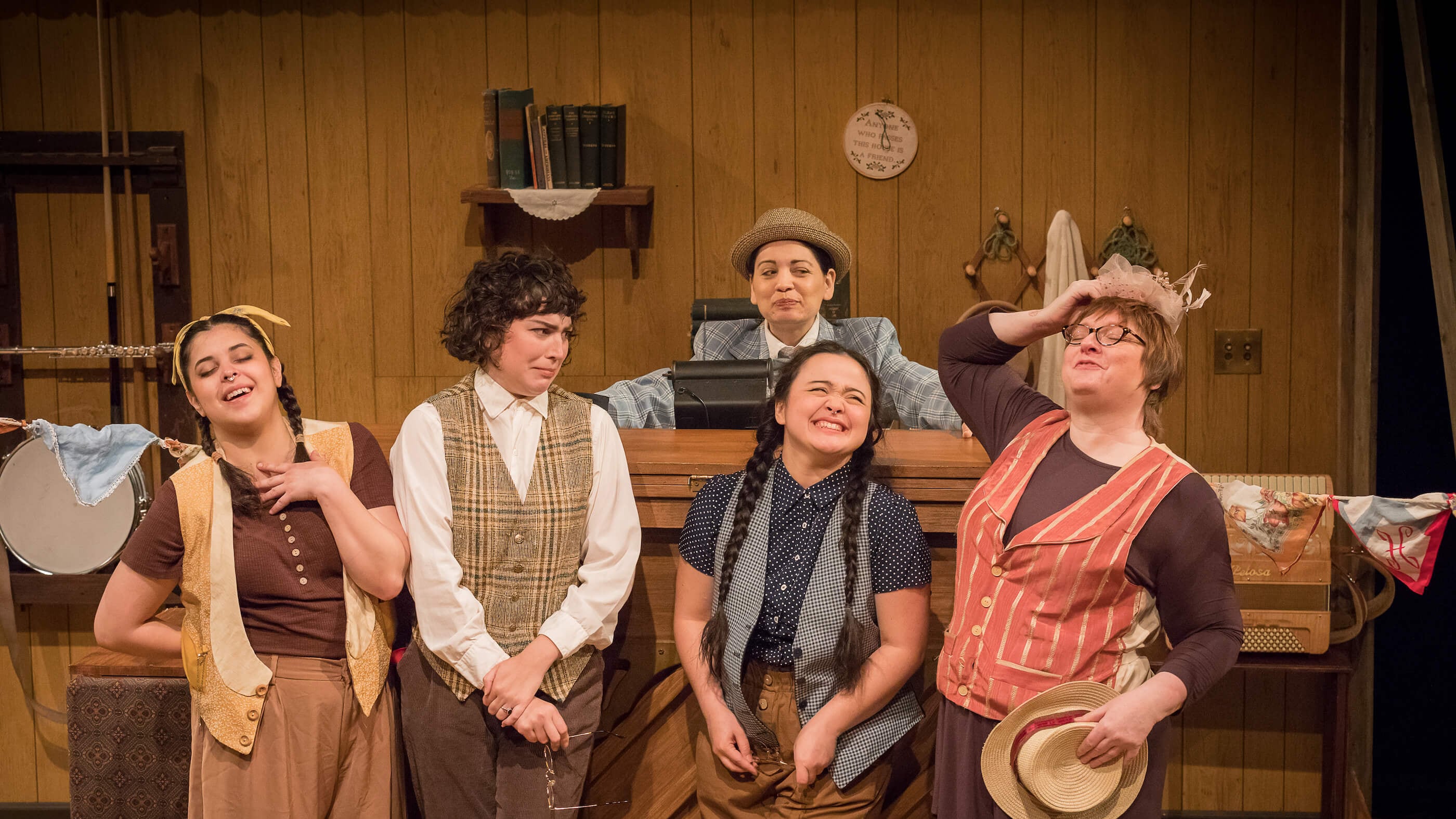“It’s a long, beautiful and heartbreaking story.” This is how Maureen Porter would characterize the formation of the Cuomo Theatre Collaborative, the latest addition to Portland’s vibrant but often hard-up theater scene.
The CTC comprises a triumvirate of Portland companies: CoHo Productions, Third Rail Repertory Theatre, and Portland Experimental Theatre Ensemble. The collaborative will be based at the CoHo Theatre on Northwest Raleigh Street and is currently in the process of purchasing the building.
The establishment of the CTC—and its eventual ownership of the property in Northwest—secures the future of the three theaters and predicts a wealth of new opportunities for Portland artists. Notably, the CTC cements the legacy of Philip Cuomo, CoHo’s longtime leader and a beloved actor, director and mentor to countless Portland theater artists, including members of Third Rail and PETE.
Cuomo died in late 2021 following a long battle with lymphoma. His passing left a hole in the heart of Portland’s theater community. “The CTC came from a shared desire to join together and complete Philip’s vision,” says Porter, the managing artistic director at Third Rail, who was married to Cuomo for 14 years.
As far back as 2018, Cuomo worked on a capital campaign to enable CoHo to purchase the building. Even as his health worsened, Cuomo was adamant that CoHo would acquire the building.
“There was a point where we recognized that his illness was not going to be something we would be able to make it through,” Porter says. In June 2021, Cuomo was hospitalized after suffering a stroke. Without CoHo’s artistic director at the helm, support from the theater’s board of directors wavered. The sale stagnated, and for a moment it looked as if Cuomo’s vision would be left unfinished.
“What happened next,” Porter says, “is this group of people—who coalesced around the care for this man and his vision—came together and talked about how to make it continue.”
Cuomo’s sisters, Michele Cuomo and Lisa Gabel, stepped in. Together, they created the Philip Cuomo Family Foundation to raise funds for the purchase of the building. Meanwhile, CoHo’s board was dissolved and a new one assembled. Last spring, the foundation bought the property for $2.5 million, a steal given the theater’s prime location in Portland’s trendy Slabtown neighborhood.
The CTC views itself as taking a stand against the rising tide of gentrification and the aftershocks of the pandemic, which has caused many performance spaces to close. Eventually, the foundation plans to transfer ownership of the building to the CTC. “This theater will serve all theater artists at any point in their path,” Michele Cuomo says.
For well over two decades, theater artists have found a home at CoHo, an “incubator” space that produces work based on artist submissions. Third Rail is home to some of Portland’s finest actors and offers a mentorship program for emerging artists (of which, full disclosure, I am a beneficiary). PETE, meanwhile, creates invigorating new works that defy genre and houses the Institute for Contemporary Performance, a yearlong training program.
While the three theaters have very different missions, they all operate on a similar scale. Ideally, the CTC will become more than a sum of its parts. “We are daring to do something different in choosing to believe in collaboration and community,” says Cristi Miles, a co-founder of PETE who calls herself a “forever student” of Cuomo’s. “It’s so much harder than running an individual organization.”
The CTC will not just realize Cuomo’s dream but expand on it. Currently, the team is working on a renovation of the building with Opsis Architecture—the firm that designed the Patricia Reser Center for the Arts in Beaverton.
Phil Johnson, CoHo’s program director, says the CTC wants to create space that is accessible to both artists and community members. The plans are still in early stages, but the renovation will likely include a studio space for rehearsals and the ICP program, as well as office space and a common area and cafe that would be open to the community.
Johnson says when he asks artists around town what they think Portland is missing, the answer is always the same: space. “What the city needs is a community of emerging artists that have access to resources. That’s a problem the CTC is here to fix,” Johnson says.
The CTC is currently fundraising for the renovation. The timeline for the project is several years—four at least—but when the renovation is finished, the result will hopefully be a boon to theater artists and audiences alike.
Ultimately, Jonson sees the CTC as an investment in community: “If you think about being an artist in this town, where do you go to be in community with other artists? Where is the theater epicenter of Portland? We believe that it will be here.”
